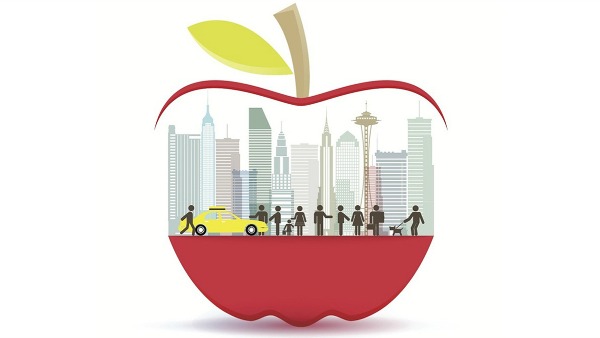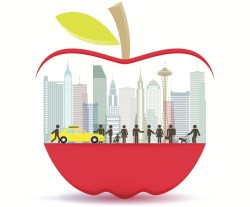New Yorkers can eat all the organics that they want — but that won’t be enough to protect them from the Big Apple’s stubborn pesticide problem.
Despite living in a dense city with only tiny patches of agriculture (much of it organic, local, and ad-hoc), New York City residents have higher exposure levels than most Americans to two toxic classes of pesticide, according to a new study.
And the poisons are not just hitchhiking in on the produce.
Researchers studied data from samples taken from New York City residents in 2004 and found that “exposure to pyrethroids and dimethyl organophosphates were higher in NYC than in the US overall.”
These are the two most widely used insecticides used on farms and in homes. They work by screwing up the insects’ nervous system — and once they make it into humans they can wreak havoc with our growth and development and our reproductive systems.
Here’s an explanation for the finding from the study, which was published in the journal Environmental Health Perspectives:
Widespread use of these compounds to control building infestations in New York City (NYC) may have caused higher exposure than in less urban settings.
That’s right, folks, think roaches and bed bugs — and the knockout poisons that the city’s ample fleet of exterminators use to kill them.
Residential broadcast spraying is an important source of nondietary exposure in NYC, where confined indoor and limited outdoor space increases the potential for contact with residual chemical. Risk of exposure is amplified indoors because compounds are slower to degrade when not subject to sunlight, rain, and soil microbial activity.
The indoor use of dimethyl organophosphates was phased out more than a decade ago because of its health impacts, but that wasn’t enough to flush city dwellers of the poisons in the years that followed the ban. The chemicals continue to be used outdoors on farms and in gardens — tens of millions of pounds every year are sprayed in America.
Both classes of pesticides can cling to fruit and vegetables — with studies cited in the paper revealing that more than 40 percent of produce can be affected. And although pyrethroids are registered as “professional use only” in New York, the researchers reported that such products are sold illegally on the streets and in stores.
If you’re a New Yorker, you’re probably wondering how you can lower your risk. The researchers found that concentrations of the poisons were higher in older residents, in those who work with insecticides, and in those who ate the most fruit. So be sure to not age, to avoid using pesticides, and to scrub the hell out of your apples.
While concerns have been growing about pesticide impacts on farmworkers, the researchers say their findings show “the importance of considering pest and pesticide burdens in cities when formulating pesticide use regulations.”




